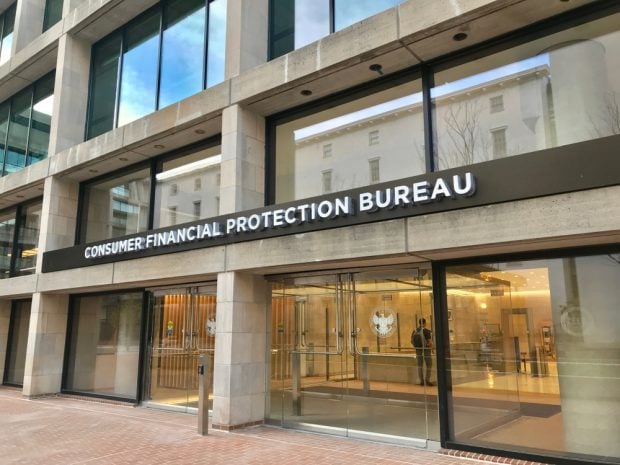 CFPB headquarters in Washington, D.C. (Source: Shutterstock)
CFPB headquarters in Washington, D.C. (Source: Shutterstock)
The repayment provisions of the CFPB's payday lending rule will not go into effect on Aug. 19—the date that was set in the agency's 2017 regulation.
That part of the controversial rule governs the ability of payday lenders to withdraw money from a borrower's bank account to repay the loan.
Recommended For You
A federal judge in Texas has agreed to a request by the agency and the Community Financial Services Association of America, the payday lender trade group, to extend his stay on enforcement of the rule.
"Neither party requests the court to lift the stay of litigation or the stay of the compliance date at this time," U.S. District Judge Lee Yeakel wrote in his ruling.
The CFPB had filed suit challenging the 2017 payday lending rule, a strict regulation issued during the Obama Administration. The association has said the rule could drive payday lenders out of business and that research that led to the rule was flawed.
The Trump Administration has sided with the payday association and so far, has issued a proposed rule that would eliminate the requirement that borrowers have the ability to repay their loans before they can borrow the money.
Consumer groups this week sent a letter to the CFPB arguing that the payment provisions of the rule should be allowed to go into effect as scheduled.
"The Rule's payments provisions will protect consumers from significant harm by restricting an unfair and abusive practice: payday and vehicle-title lenders' repeat attempts to debit borrowers' bank accounts, after two consecutive withdrawal attempts fail due to insufficient funds," the groups said.
Repeated attempts to access a borrower's bank account can result in overdraft fees or even checking account closures, the groups said.
"These harms are especially acute in a market plagued by lenders making loans to borrowers who cannot afford to repay them," they added.
The groups sending the letter to the CFPB were Public Citizen, Americans for Financial Reform, the Center for Responsible Lending and the National Consumer Law Center.
© Touchpoint Markets, All Rights Reserved. Request academic re-use from www.copyright.com. All other uses, submit a request to [email protected]. For more inforrmation visit Asset & Logo Licensing.






